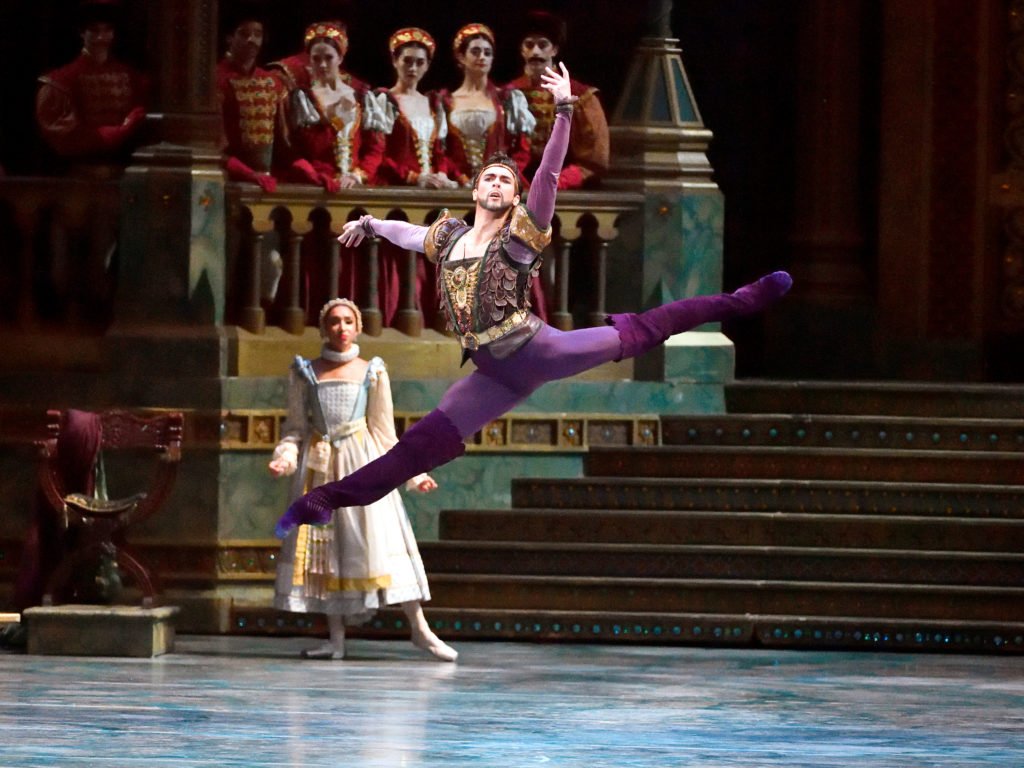Thomas Forster
What inspired you to write the children’s book, My Daddy Can Fly? Who do you hope to reach through this book? What made you decide to share this story with the world?
“ABT offered me the lovely opportunity to work with a publisher, and create my own children’s book…and being that I felt many young boys who pursue ballet might deal with societal stigmatism and feel isolated as a result…[or] are maybe not given the support they deserve, I felt that this was an amazing way to address those concerns…[and therefore] this was something that I was more than happy to be a part of and felt I couldn’t pass up.”
“Beyond being a tribute to my son, this story is an ode to all the young boy ballet dancers out there, especially those who might feel judged, shamed, or maybe condemned for pursuing a career that they love…By reading this book, I want them to know that regardless of any discouraging voices they may encounter, they are supported in their endeavors no matter what.”
In the story, Ben’s passion is sparked by his father’s pursuit of ballet. How were you first introduced to ballet?
“Karate initially sparked my interest after growing up watching Teenage Mutant Ninja Turtles, but my mum told me that I had to first take ballet classes to make my legs strong, and then she would consider letting me take karate. But, as the years went on, ballet became much more than just a stepping stone to reach my dream, it became my dream."
“I am so glad that my mum encouraged me to do ballet because I don’t know where I would be without it…Looking back, without that push from my mum, I honestly would have been—like many young boys out there—stuck behind the preconceived notions that ballet is just for girls, when it is so much more than that…But here we are, look how far it took me…I couldn’t be more grateful for it.”
Many young boys aren’t lucky enough to grow up having a professional ballet dancer as their dad, like your son and Ben in the story. Did you have any male dancers that influenced and inspired you when you first started ballet? How were those experiences reflected in the book?
“Growing up, I didn’t have any male ballet dancers to look up to, being that my first studio that I was a part of was very female dominated…[and] in such an environment, staying motivated proved challenging. But, it was a transformative experience to be surrounded by people of like interests once I joined The Royal Ballet School Associate Programme when I was 8 years old…[and] it gave me that competitive edge and sense of comradery that I was looking for."
“I’m so glad that my son gets to see me in the studio and has this opportunity to immerse himself in this world…[and] instill within himself the same passion and appreciation I share for the arts…[and] discover what it truly means to be a ballet dancer, not just the superficial idea of girls in pink tutus and pointe shoes, but what is also means to be masculine, athletic, and strong.”
“In today's world, social media platforms are a great way for young ballet dancers to connect with and witness the artistry and skill of accomplished dancers from all around the world.”
In my experience, there is this misconception that male ballet dancers aren’t strong or athletic, and therefore tend to be stigmatized and called names like “sissy” or “gay.” Some people also believe that ballet isn’t a serious career to pursue like law or medicine. So, what was your experience growing up as a male dancer? What did you find most challenging about pursuing dance as a young male dancer? What kind of support did you have within your home or community?
“Luckily, I didn’t face any harsh bullying growing up. But, early on, some people liked to tease me for doing ballet. But eventually, once they realized that I was willing to stand my ground and nothing was going to deter me from doing what I loved, they learned to accept and support me for who I was and what I wanted to pursue.”
“Still today, when I tell people I’m a ballet dancer, sometimes they ask me, ‘So what’s your real job?’...I’ve come to realize that there’s a lack of understanding or appreciation of the arts and that many people don’t realize the serious pursuit that ballet can represent for men…People are stuck in this narrow perception that overlooks the artistry, masculinity, romance, emotion, and strength that is involved. They don’t realize that there is no Romeo & Juliet without Romeo.”
Is there anything you would like to see improve about the dance industry? How can we, as an industry and in the broader community, work to support male dancers?
“One way would be to continue navigating and learning about these issues like you are doing through your project…and giving society the opportunity to broaden their knowledge of what ballet is and can be…[and] that is one thing I hoped to achieve through my book—to educate the public and allow them to rethink their preconceived notions of what ballet can mean for young boys across the globe.”
“Right now, ballet may be seen as a very elitist and exclusive artform…so it would be lovely to make the arts more accessible (to both view and do) for the broader community…this would also raise awareness for the issue you are looking into as well as allow society to explore what the arts may have to offer them."



